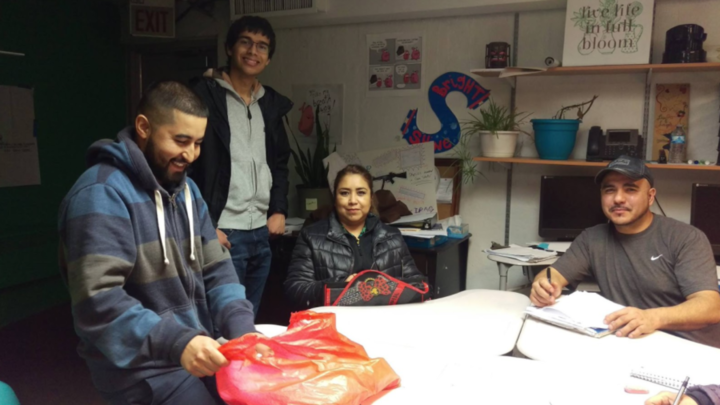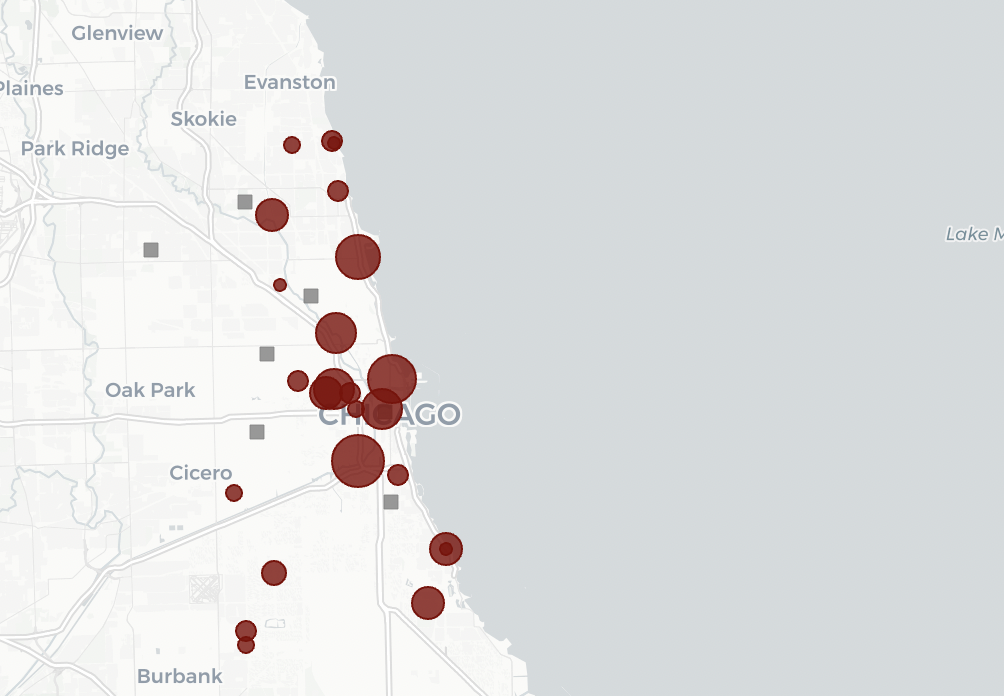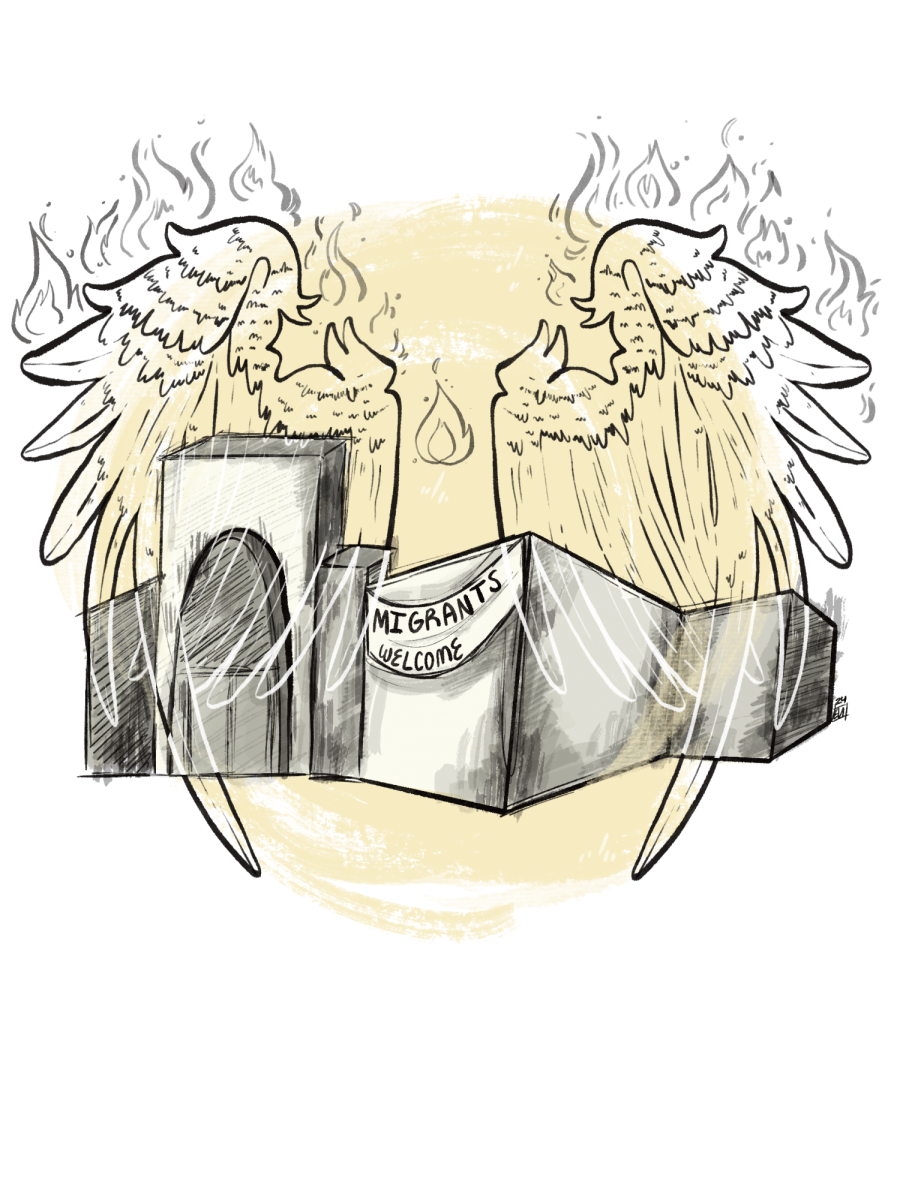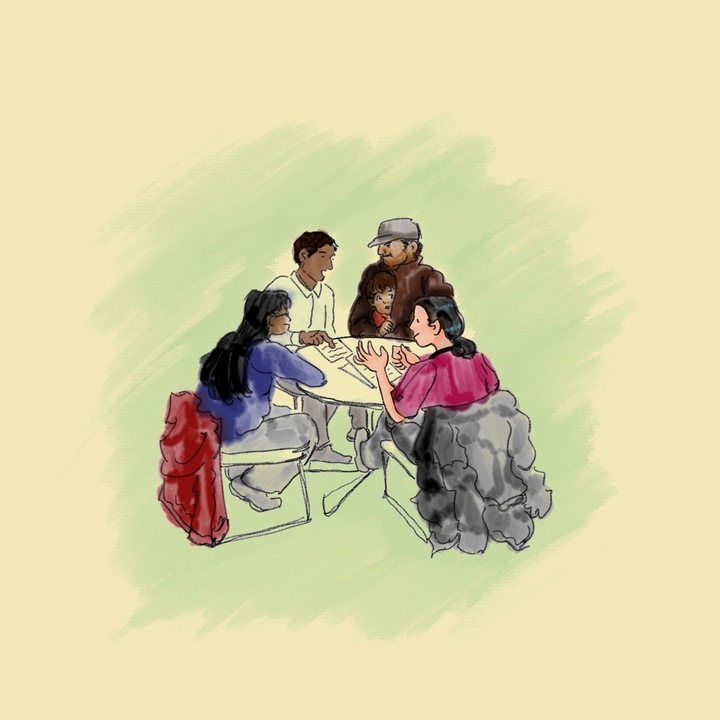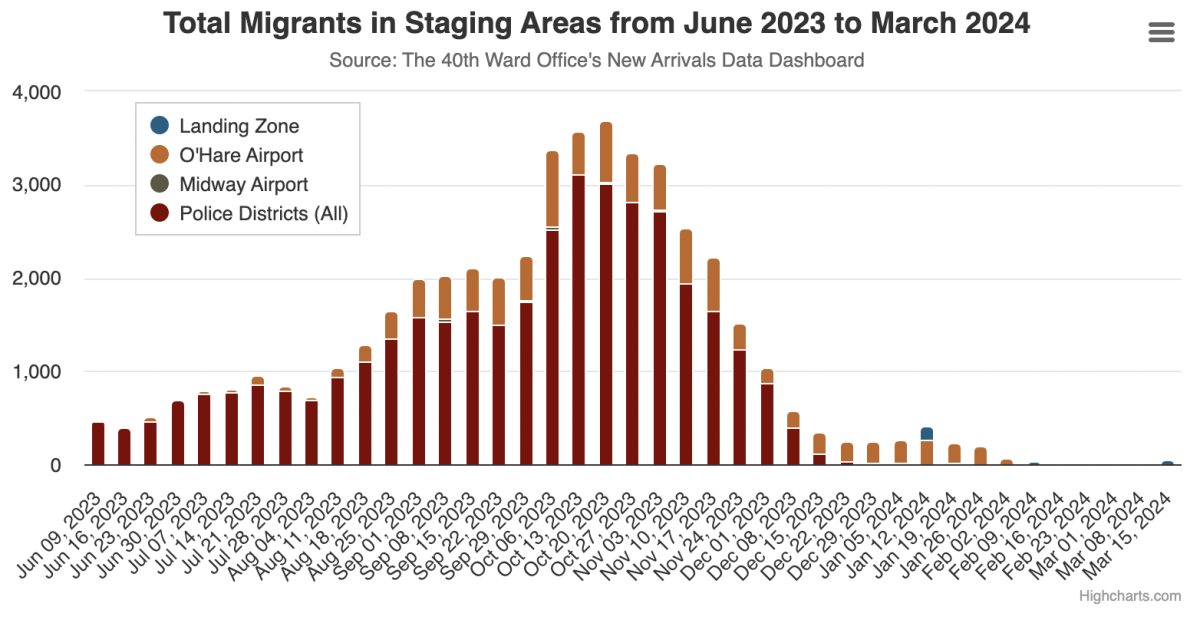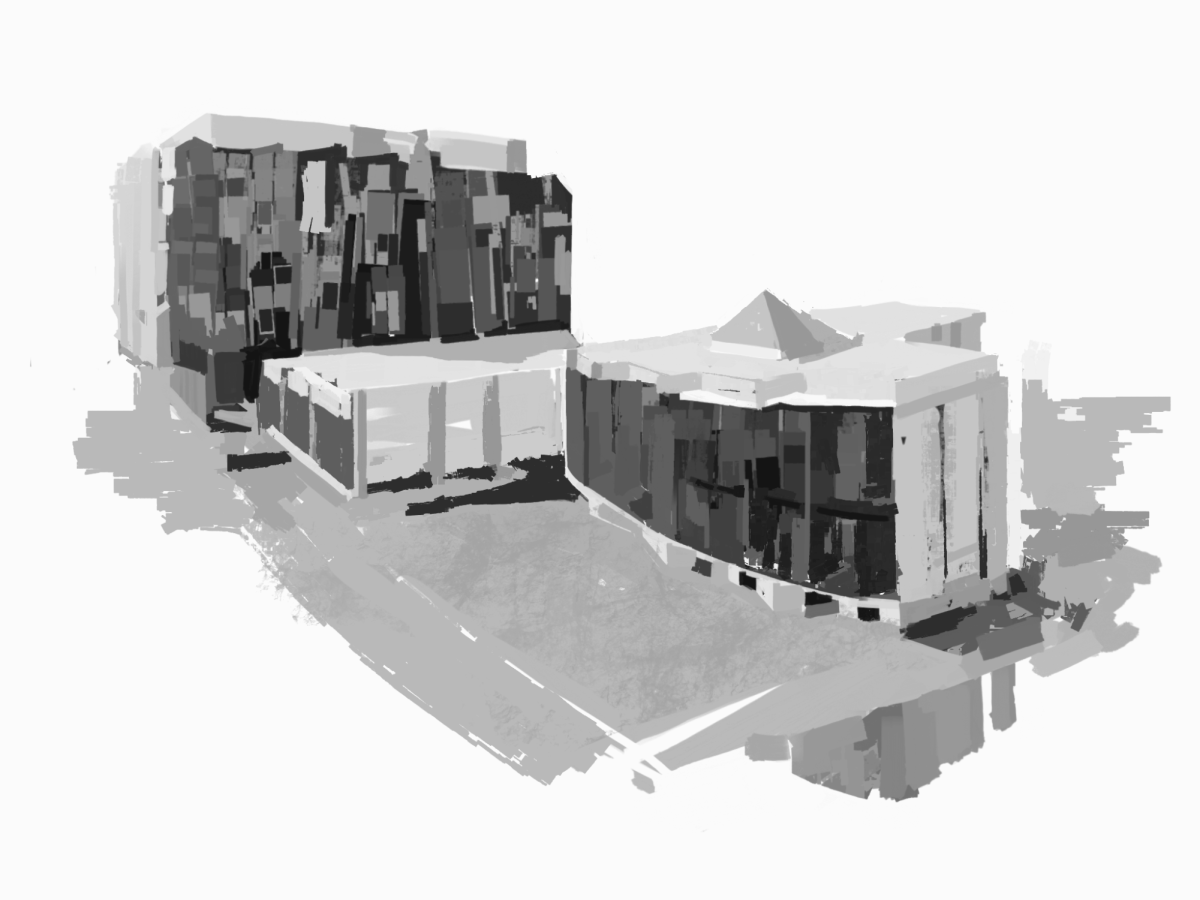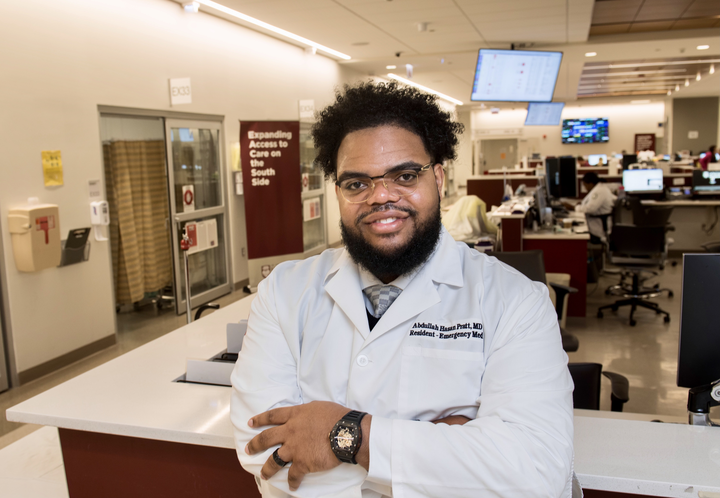How did UChicago assist in refugee resettlement during the World War II? What is the University’s current stance on social and political issues regarding asylum seekers? Where did all of this begin? In an effort to uncover these questions about UChicago’s nuanced relationship with migrant and refugee communities, The Maroon conducted a deep dive into the major events of the University’s long history with these groups, including key faculty and student-led initiatives and institutional responses.
The History of the Settlement
UChicago’s efforts to aid migrant and refugee populations can be traced back to its founding and were spearheaded by faculty members, beginning with the University of Chicago Settlement House.
Founded in 1894, the Settlement was established in the packinghouse area of Chicago by a group of UChicago faculty members. The Settlement sought to aid foreign-born packinghouse workers through lifelong support. The Settlement provided community members with English instruction, assisted with citizenship and legal issues, and hosted group activities that nurtured basic skills like sewing and cooking, among other services.
Mary McDowell, Head Resident of the Settlement at its founding, wrote: “Settlement residents do not go to the people with a plan, a policy, or a proposition; they go as friends, as neighbors with a keen sense of the commonness of all that is best in all.” This reflects the Settlement’s goal to promote neighborhood unity, fostering a “home” for residents regardless of race, nationality, or language—a sentiment that challenged the anti-immigrant stance largely present throughout the city.
The University of Chicago Settlement was part of the larger settlement movement, a reformist social movement brought to Chicago through the founding of Hull-House by Jane Addams and Ellen Gates Starr in 1889. Hull-House helped immigrants integrate into American society through practical classes and social activities.
The Crown Family School of Social Work, Policy, and Practice, formerly known as the School of Social Service Administration (SSA), was born from another settlement—Chicago Commons, which was founded by Graham Taylor, a professor at the Chicago Theological Seminary, in 1894. Chicago Commons merged with Emerson House in 1948 to form the Chicago Commons Association, later absorbing the University of Chicago Settlement in the late 1960s. As subsequent generations became more integrated into mainstream American culture, these settlement houses shifted their focus to providing greater educational opportunities for both immigrants and non-immigrant populations. They also became involved in broader issues such as labor rights, women’s suffrage, and other social justice causes. This wider focus contributed to a shift away from being solely centers for immigrant assistance. The Crown Family School merged with UChicago in 1920 with the help of Addams as a board member.
The Crown Family School continues to lead research on migrant populations and, most recently, cohosted a panel discussion with the City Club of Chicago on October 30, 2023 which explored the consequences and complications of the city’s current migrant situation. The conversation focused on the need to create a system in the city that will sustainably set migrants up for future success as well as promoting mental health for the migrant communities.
Sponsoring Scholars Across the Globe
In 1999, UChicago faculty members founded Scholars at Risk (SAR). According to its website, SAR is an “international network of institutions and individuals whose mission it is to protect scholars and promote academic freedom.” Since SAR’s founding, many other universities have joined the network to help defend scholars around the world who are imprisoned or silenced in their home countries. These member universities provide temporary academic positions to scholars facing serious threats and offer them a place to stay safe and continue working.
Most recently, Christine Mehring, a UChicago art history professor, helped bring Fazel Ahad Ahadi to the University with the aid of both SAR and Iranian filmmaker Mohsen Makhmalbaf, who had been helping scholars find a way to leave Afghanistan when the Taliban took over. Ahadi is a well-known screenwriter, poet, playwright, and scholar in Afghanistan who had openly criticized the Taliban. Mehring helped coordinate a temporary lecturer position for Ahadi, which he was able to start in November 2022 after waiting eight months in Germany for a visa.
However, UChicago faculty and administration had begun sponsoring and aiding scholars long before SAR’s formation. The University helped provide jobs and support to scholars fleeing Nazi Germany and the Soviet Union’s Iron Curtain. Italian physicist Enrico Fermi is one well-known example. Shortly after arriving in the United States, Fermi became an important member of the Manhattan Project team, which attained the first controlled, self-sustaining nuclear chain reaction at UChicago in 1942, making possible the development of the atomic bomb. In 1946, Fermi resumed his academic work at UChicago as the Charles H. Swift Distinguished Professor of Physics and a member of the newly formed Institute for Nuclear Studies, which later became the Enrico Fermi Institute for Nuclear Studies. The University also notably supported other scholars like Thomas Mann and Hannah Arendt at the time.
Tomáš Garrigue Masaryk, former president and founding father of Czechoslovakia, was another scholar with important ties to the University. Masaryk was a controversial figure who was invited to Chicago by Charles Crane, who had endowed a lecture series at UChicago. In 1902 and 1903, Masaryk spent his time giving public lectures and meeting the large Czech-American community in Chicago, gaining their support for a Czech republic. Masaryk’s daughter, Alice Masaryk, became part of the University of Chicago Settlement House, collaborating with Jane Addams on community work until 1907. After World War I, with Crane’s help, Masaryk was able to convince Woodrow Wilson to support an independent Czechoslovakia. The Tomáš Garrigue Masaryk Monument now stands on the east end of Midway Plaisance.
The University further supported Czechoslovakia by providing job opportunities for Foreign Minister Jan Masaryk, President Edvard Beneš, and numerous others.
The Darfur Controversy
Beyond their support of foreign scholars, the University administration has taken a more controversial approach to addressing migrant and refugee populations. Formalized by the 1967 Kalven Report, the University contributes to social and political issues through their support of the academic freedom of faculty and students while maintaining a neutral stance as an institution.
The Kalven Committee was appointed in February 1967 by then-President George W. Beadle, who requested a statement on the University’s role in political and social action. According to the report, “the neutrality of the university as an institution arises then not from a lack of courage nor out of indifference and insensitivity. It arises out of respect for free inquiry and the obligation to cherish a diversity of viewpoints.” Instead of a university voicing its opinion, “the instrument of dissent and criticism is the individual faculty member or the individual student.”
This long-standing practice has resulted in many criticisms aimed at the University for not taking greater action on serious local and global issues over the decades. One of the most notable instances of this was the University’s response to the genocide in Sudan’s Darfur region in 2007, where 400,000 people died.
According to the University of Chicago Magazine, President Robert Zimmer established the Darfur Education Fund of $200,000 to support faculty and student work to advance human rights. This fund was the first of its kind among colleges and universities in the United States. Zimmer told the Magazine that the purpose of the fund was “to underscore the seriousness with which the University takes the situation in Darfur and its belief in the time-tested truth that the University’s greatest social contribution is made through the efforts of its faculty, students, and alumni, in the context of the rigorous analysis and inquiry for which Chicago is known.”
However, much of the campus community had hoped for the University to address the crisis through divestment from any company whose business has supported the ruling regime in Darfur, which was the route that many other universities took, including all eight Ivy League schools, Stanford, and the University of California system. The campus chapter of the national group Students Take Action Now: Darfur (STAND) argued that this fit into the Kalven Report’s “exceptional instance” clause, which allows the University to act as a corporate body when a crisis challenges the “paramount social values” generally accepted by the University. STAND’s petition to the board was signed by 1,500 students, 110 faculty, and the Kalven Committee’s last surviving member, professor emeritus of history John Hope Franklin, but the board still voted against divestment.
Taking matters into their own hands, STAND planned a five-day simulated Darfuri refugee camp on the main quad which would provide tents, food, security, and other items to 25 event participants. Twenty non-participants would also partake in meals, and 1,200 additional non-participants would receive pamphlets and information.
Present Day Efforts
Many other UChicago student organizations have organized demonstrations and offered other forms of support for migrants and refugees over the past few decades. Much of this action came after former President Donald Trump’s election in 2016. New Americans, a program that sends UChicago students to tutor individuals preparing for the U.S. citizenship test, experienced an increase in interest that year. The group tutored legal residents in a Path to Citizenship class weekly at the Instituto del Progreso Latino in Pilsen. The program also worked at the Erie Neighborhood House, a social services organization that provides workshops for undocumented residents and individuals who are not as far along in the naturalization process.
In February 2017, around 60 students and faculty took part in a “Solidarity March” around campus to show their support for immigrants, minorities, and women following Trump’s election. Though the main purpose of the march was to show unity and support, it was more urgently driven by frustration with the political climate and anti-immigration executive orders.
More recently, the Hyde Park Refugee Project, a program founded in 2015 that works to support refugee and immigrant families settling in the South Side, started hiring UChicago students to help out. The project helps refugee families find affordable housing, connect with employers, and learn English.
Last year, the Association of Latinx Students for Social Justice (ALAS), a student-run organization within the Harris School of Public Policy, hosted its eighth annual “I Stand With Immigrants” Day of Action on October 25. The event consisted of a panel discussion featuring policy experts, community organizers, and student leaders who discussed how to improve mental health resources and improve policymaking processes for the migrants housed in Hyde Park.



